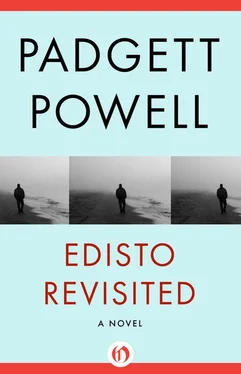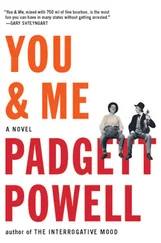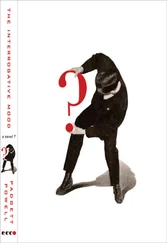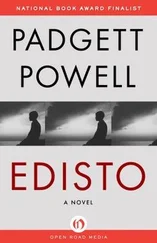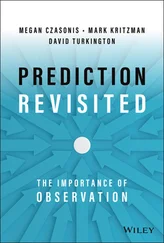Life is not prevailing. Life is letting those who insist on it prevail around you and preserving a measure of dignity for yourself on the fringe of the embarrassment. The meek shall inherit the earth if they can wait out the prodigious period of presumption.
MY PROWESS AS A coastal architect rests on certain indissoluble premises. These include but are not limited to the following: find a way to put the woman into a house that suggests to her she is the widow of a sailor (a cupola with widow’s walk may be too overt for a Southern woman, but not for one from Ohio — she will be pleasantly haunted by it); put the man into a house that suggests his main job in life is to be a good host and a good host’s main job is to see that everyone has a drink (for the Southern man, a big bar on the main floor reminiscent of a fraternity house; for the man from Ohio, a small bar on every floor, including the basement, for which a facsimile must be made by closing in the support pillars); convince both the man and the woman that the elevations of the house are intimately and uniquely in communion with the elevations of the lot on which it is to sit. This last is most easily accomplished by having no relationship whatsoever between elevations. If this is noticed, speak of “tension” and sweep your arm toward the roiling Atlantic.
Any difficulties to this point can be resolved by attention to surface. Nothing so puts to rout a couple worrying about whether they are or are not to have, finally, their dream home as some somber revelations about surface —its texture, its color, its “integrity.” In the toughest of cases, those not stampeded by integrity of surface, I have used “degree of dimensional and cultural stability.” There is not a home buyer in this country in my experience who will fight with that. What is culturally stable of course is the pastel. They have seen the corresponding “earth tones” on the black shacks and jooks, and the garish neons on the roadhouses and motels that surround but do not include the pristine marsh they are colonizing, and none of that bold poor down-trod color will leak out here into the clean, salty, expensive air. Yet there are some sophisticates who resent what they recognize as the undemocratic pastel, typically objecting to “blandness.” For these hearty pioneers you must be ready with alternative pasteling. This is a snap, because alternative pasteling is historical, and if there is any stronger, finer irony than selling a brand-new house by claiming it historical, I do not know what it is. I stain the outside — before there was paint, all wood was treated with stains, usually involving blood (“rubricated with animal products”) — and I pickle the inside. Pickling is in fact my middle name. You can take a job away from an architect talking about faux marbling with paint and sponges if you walk up and pickle a piece of trim before their very eyes. Because it precedes paint (modern paint is corporate swagger, fruit of research & development, therefore undemocratic) and because it looks innocuous and yet is authentic, pickling will convince the most hard-to-sell egalitarian dream-home builder.
I have good relations with framing carpenters. These are fellows holding useless advanced degrees and very useful 28-ounce Estwing rip hammers. They wear short pants and blond boots that they refuse to oil, and are sun-blond themselves and smoke pot well and frame well. They are what is left of the political ambition of the just post-Vietnam American hippie, if there is such a thing — political ambition in a hippie (and there is, if Dr. Bronner’s peppermint soap is soap). I like to show up about quitting time with a case of beer, when only the framers are still at a job, and sit in the open, upper rooms with them to ostensibly look over the plans, which I roll out on the plywood subfloor and pin down with beers and invite them to comment on — whether the headers are over- or underbuilt or how they feel about all these skylights. The post-’Nam hippie framer falls into two camps on skylights: those who did not go favor skylights, the more the better; those who went condemn them as dreamy invitations to perpetual roof leaks — if you want light, put in windows, real ones, and beyond that buy some light fixtures and pay to run them. You do not cheat the light of day by cutting holes in the roof. A framer who went will let a framer who did not go do all the skylights on a job.
“Do you think this house messes up the beach too much?”
“What?” the framer who went will say. “Mess up the beach ?”
“You’ve been as considerate as you could be, I think,” the framer who did not go will interrupt, prompting a long look from the framer who went.
That’s about as far as you want to go into the issue of beach hugging with framers whose livelihood depends on beach mauling, whether they went or didn’t. But this is a nice moment in your dubious occupation, drinking beer and smelling the faint ammonia of the plans and the good salt air and the perennial whiff of pot on these guys who do the actual, honest, hands-on beach mauling, driving their twelvepenny nails into your white, white spruce all the livelong day, sitting with you a moment in your respective philosophical reposes. You are not such a bad guy for a suit, and they of course are not such bad guys for grunts. A sunset under these conditions, glassy waves catching the last pink light, a green marsh catching a sudden chill and stopping even its fiddler ticking, and turning gray, can be a most agreeable thing.
WE HAVE BEEN KNOWN to spend an evening up at Jake’s. The first of these was memorable, because no one else was there and Jake was free to romp with us in racial set pieces, and because I learned that my friend Jinx had died. Patricia and I went in, feeling smart and secure in each other, as we are wont to do, to have a drink and to establish her as a credit customer there should we ever need it. The place was bone empty, 9:30 on a Monday night.
“Damn, Jake. Where is everybody?”
“Everybody here.”
“Where’s … where’s Jinx?” I hadn’t seen Jinx, or thought of him, in years.
“Who?”
“Jinx.”
“ Know no Jinx.”
“You know, skinny guy. Quiet dude. Played—”
“He dead.”
“Dead?” I looked at Patricia — she was looking at me with a kind of told-you-so raised eyebrow, her purse still on her shoulder. I took it and gave it to Jake, and he buried it somewhere behind the bar as if he had hundreds of purses to keep track of. It was funny. He took about three minutes, bent over and unseen behind the bar. Then he popped up, freshened by duty, and said, “Sickle cell.”
“Sickle cell what?”
“Sickle cell Jinx. He gone.”
“No.”
“In the hole.”
“How old was he?”
“How I know how old is he?”
“Give us the baddest malt liquor there is, Jake. Treat us like brothers.”
Jake regarded Patricia. “He like this when he little, too. You in trouble.”
“I know it,” Patricia said.
Jake was complying. He gave us two tall, totally undrinkable things in gold cans with pictures of cobras on them, and we drank them. The place empty like that — a long flat-back hall with the feel of fine glass underfoot on the concrete floor — was austere, stark, frightening. I could recall this friend of mine Jinx playing pinball by himself, drinking alone, smiling at anyone who interrupted him. I recalled, too, how neat he was. He had a kind of preppie air to him: pressed, or permanently pressed, polyester shirts and slacks, and dress shoes, the effect of it skewed when you noticed he wore no socks. I remember that. His ankles were nearly the same color as the black shoes into which they fit, and they looked hard and worn and slick as the shoe leather itself. It was like a hoof and a shoe; there was no place for a soft sock in this arrangement. I looked closely at these feet one night, sitting on a stool under the pinball machine. In the days of my childhood celebrity at the Grand, sitting under the pinball machine would prevent people from asking ad nauseam if I had mice in my ears. I now noticed the pinball machine was gone.
Читать дальше
